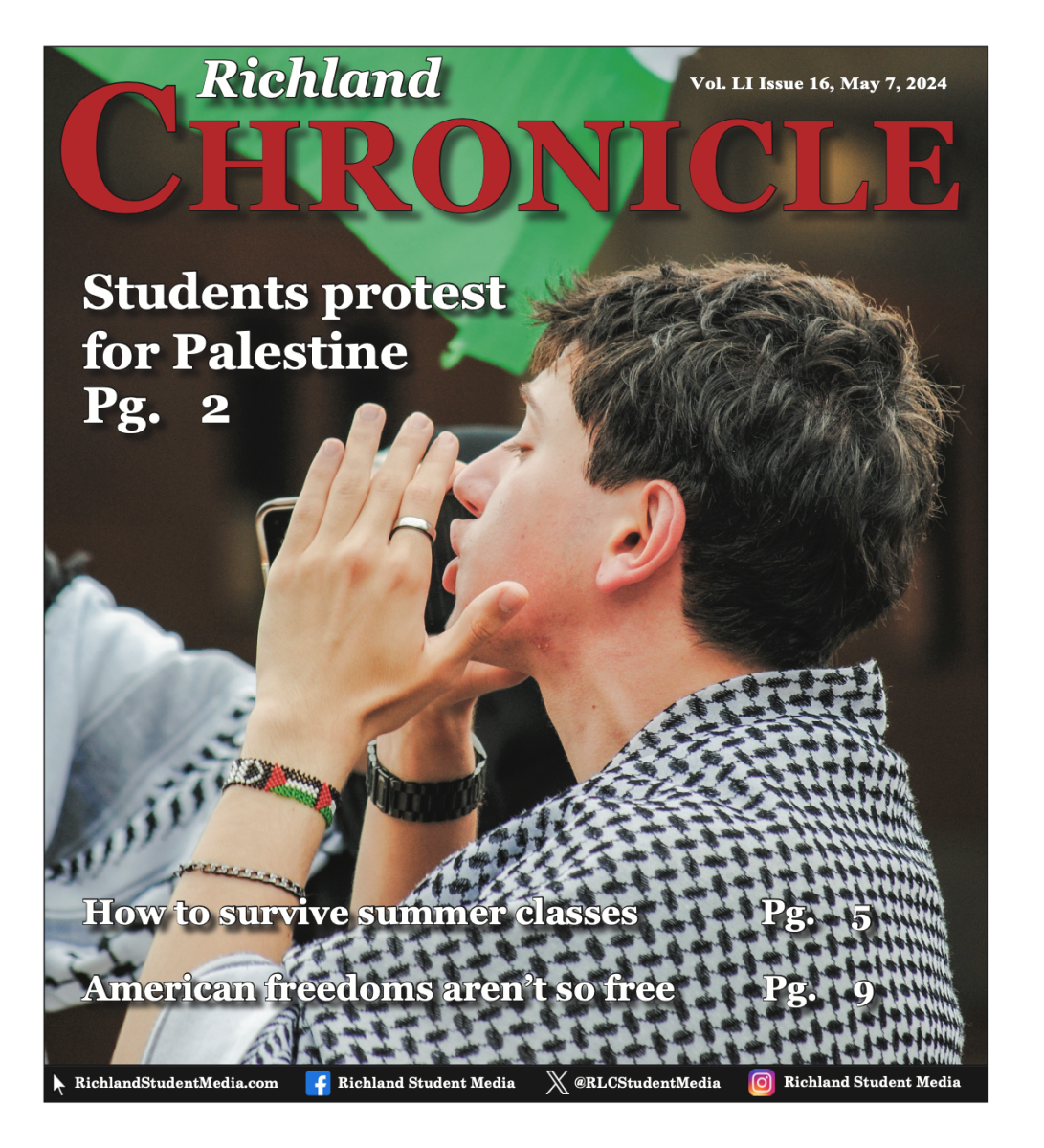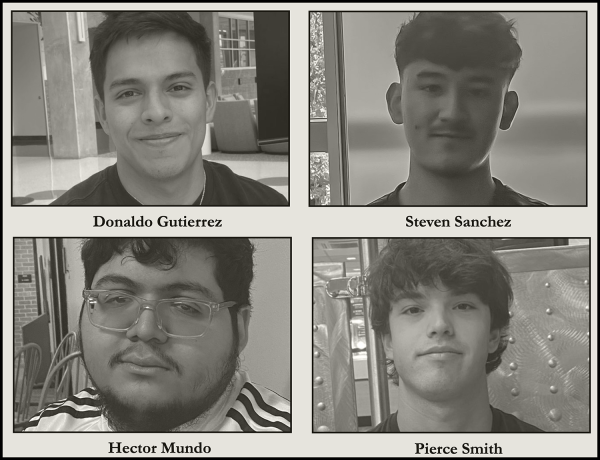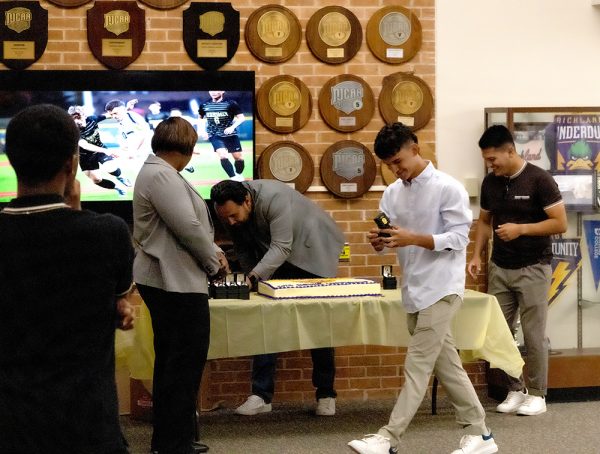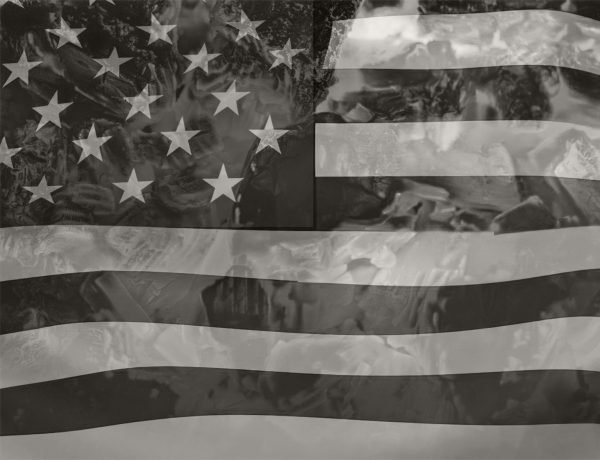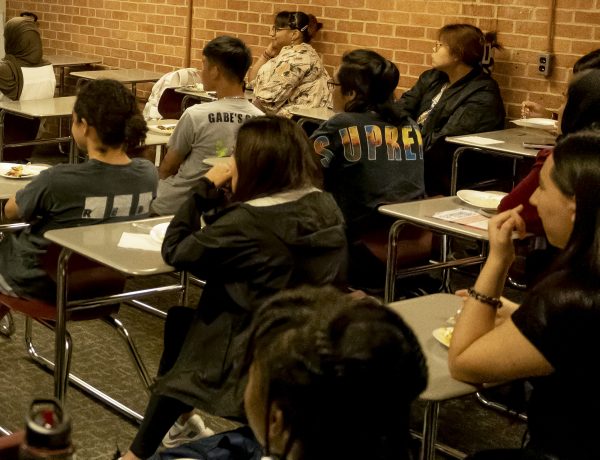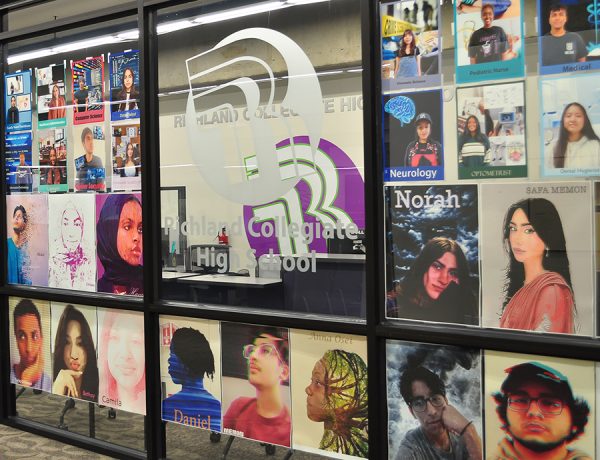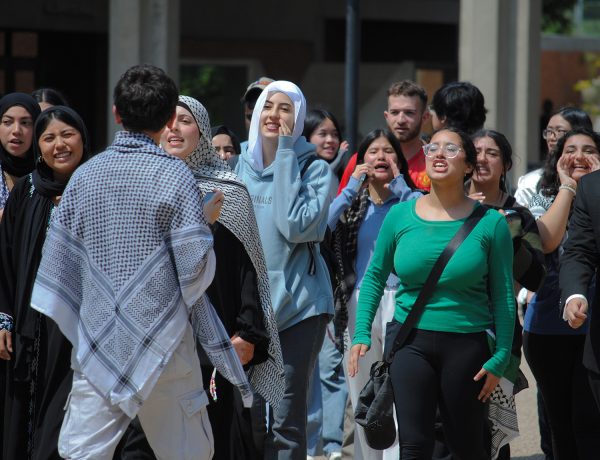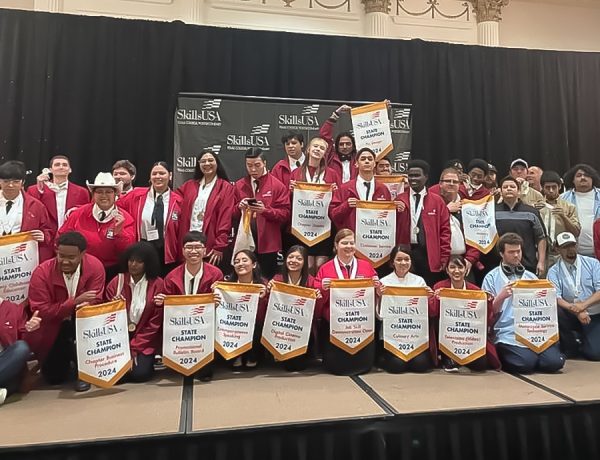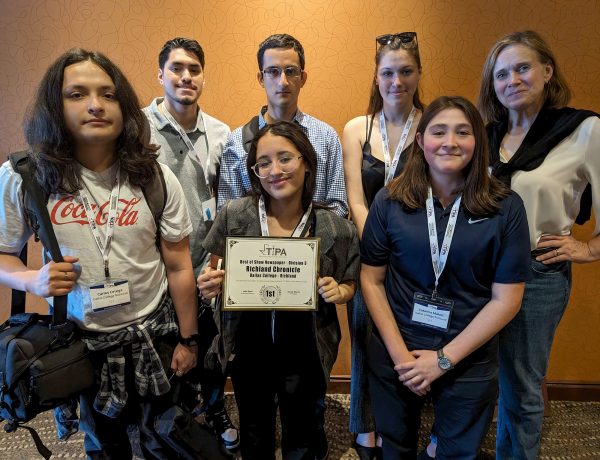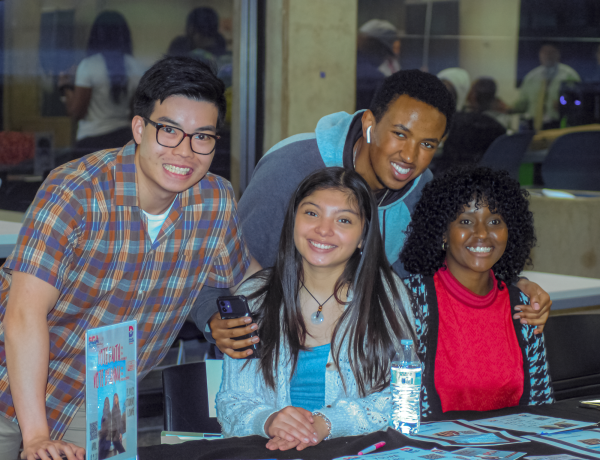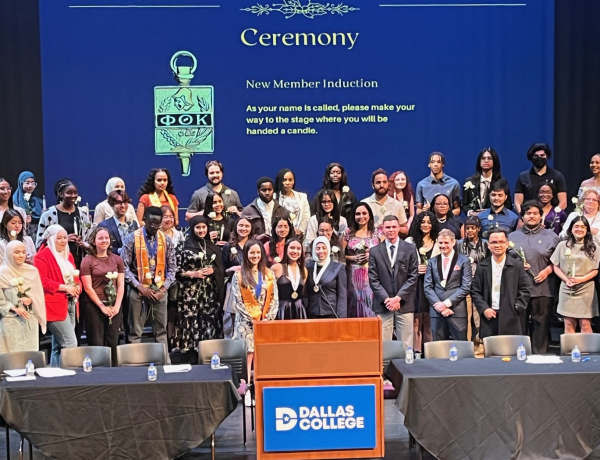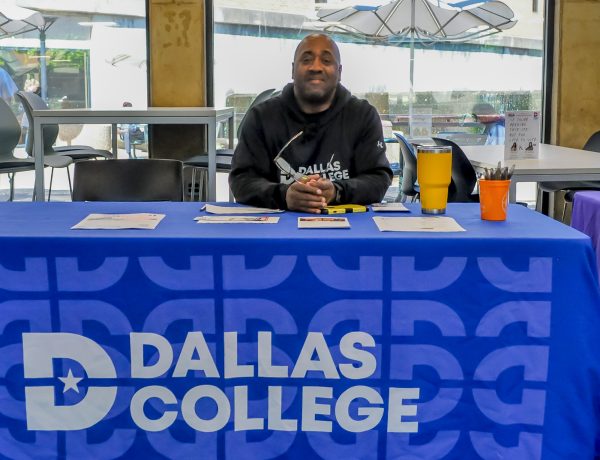To write or not to write with AI
March 21, 2023
In recent years, artificial intelligence (AI) has become more and more popular as part of life. On the other hand, writing is an essential part of our daily routine, from sharing our lives in emails to taking notes in class. It should not be a surprise then that AI for writing and other creative tasks such as image generating and brainstorming has become a new reality. According to anyword.com, AI writing programs are based on spell checkers on computers since the ’80s.

Richland Campus English professor Dr. Kendra Unruh created a developing AI session for faculty in order to inform her fellow professors about the new technology. She explained that even though there are professors who are against the use of artificial intelligence in generating content for their classes, there are others, including herself, who support the use of this technology as a tool to do schoolwork.
Although Unruh has not used these tools in her class, she said other professors are already letting their students to work with this technology. She said in the future she will use AI for asking a question and analyzing the answers to have better results.
“That’s making students think and analyze and dissect the writing, which is part of all the learning process. All part of the learning process to be a better writer,” Unruh said.
According to anyword.com, this technology is becoming more and more sensitive to variations of writing, producing “copy that appeals to females, or children, or people who prefer bullet points.”
Soon, Unruh said, it will be able to mimic a writer’s own style to generate personalized works.
In the future, Unruh said she wants to have the learning of ChatGPT as part of her classes because she said this technology will not go away. It will be another tool students will use in their future outside of college. Unruh compared GPT with other writing tools and programs. She said it is important to teach students to use them now.
“I think ChatGPT is going to become where young people just get used to using it. Like they’ve gotten used to using calculators or Grammarly,” Unruh said.
To make the use of AI writing programs fair and avoid misuse, Unruh will ask her students to use it to generate the brainstorming and produce the first draft of their papers, which will be helpful in the writing process. She said she will also keep asking her students to write a reflection of each paper about the changes made on them.
ChatGPT is free for users. However, it has become so popular that it is more difficult to get into the program, according to Unruh. Of course, it has an upgrade version that costs $20 per month that includes more features and benefits such as priority during busy times and faster response, according to pcguide.com.
Like any other computer program, having a paid version creates a concern about who will be able to use AI writing assistant and who will not.
“We need to think about professors and if somebody wants to require that students [to] use the GPT, well, that can be a problem,” Unruh said.
The concern will be bigger if the AI writing assistant is required because it is used not only for writing but for much more. People use AI to code, to write songs and poetry and even to dispute bills, according to Unruh.
How much and when AI will be allowed in the classroom will be determined by each individual professor. Companies such as Microsoft are investing heavily in this technology and incorporating it into programs including Word, PowerPoint or Excel is a possibility, Unruh said. She added that excitement, interest and fear are the most common feelings among Dallas College professors, according to a poll she conducted.
“I think there is definitely still fear, myself included, because this is new. It means we really do have to change the way we teach things. … But there is also a lot of openness from our faculty,” Unruh said.

